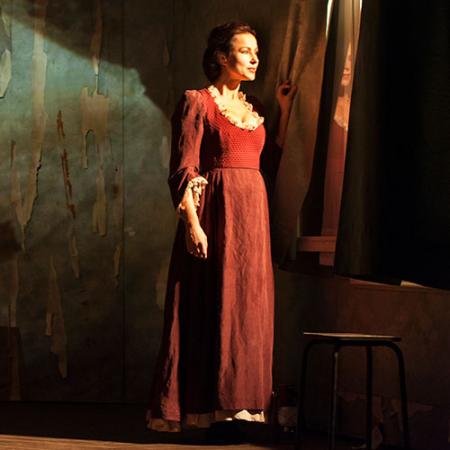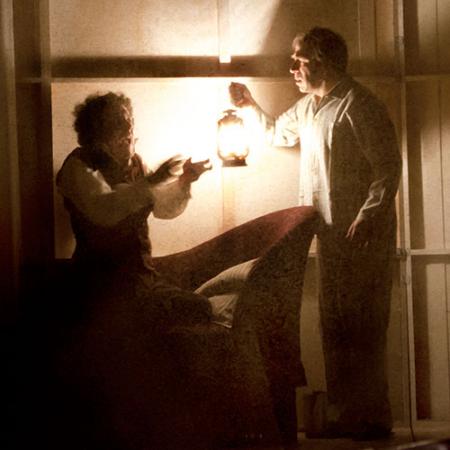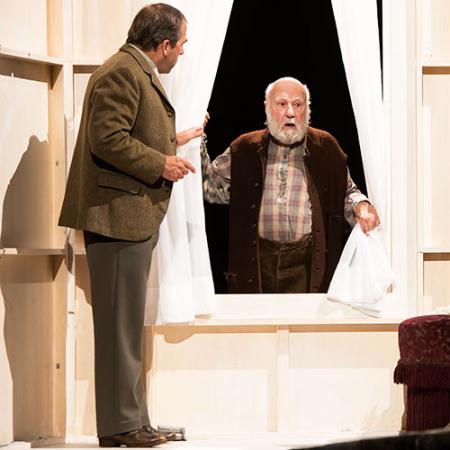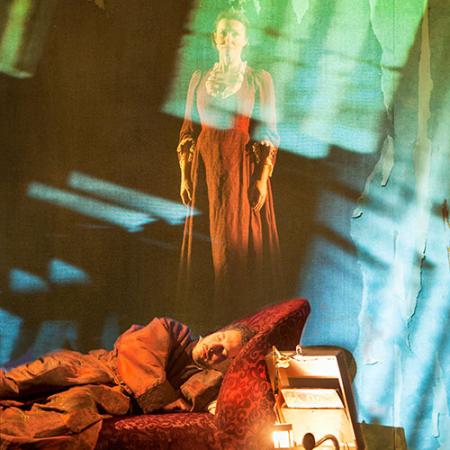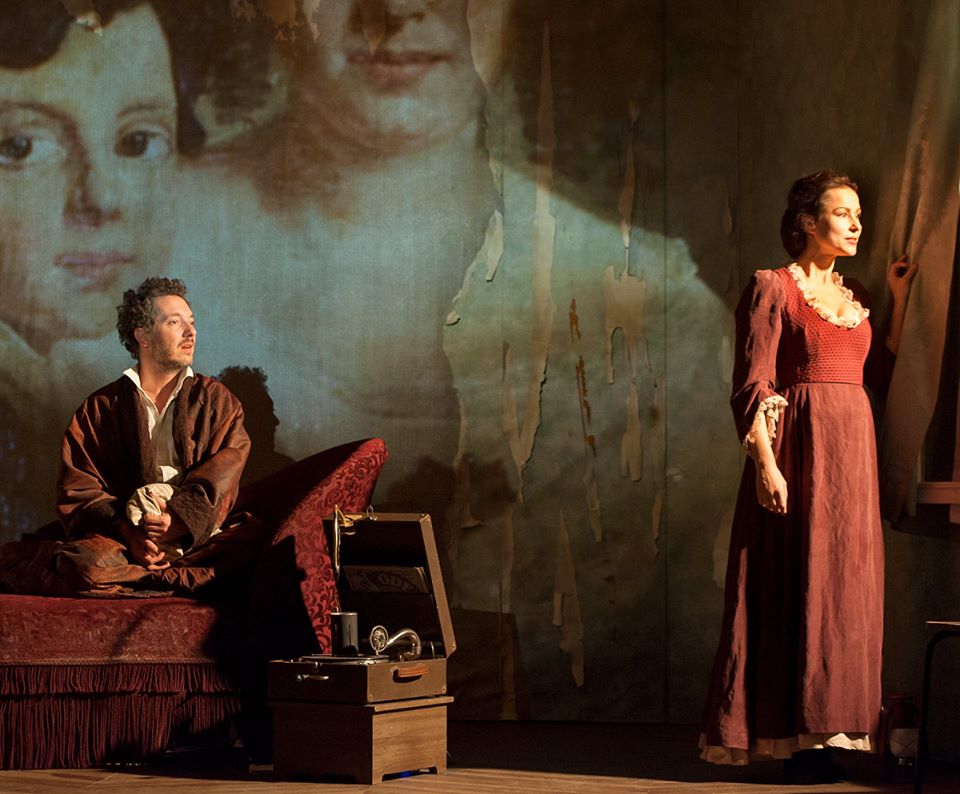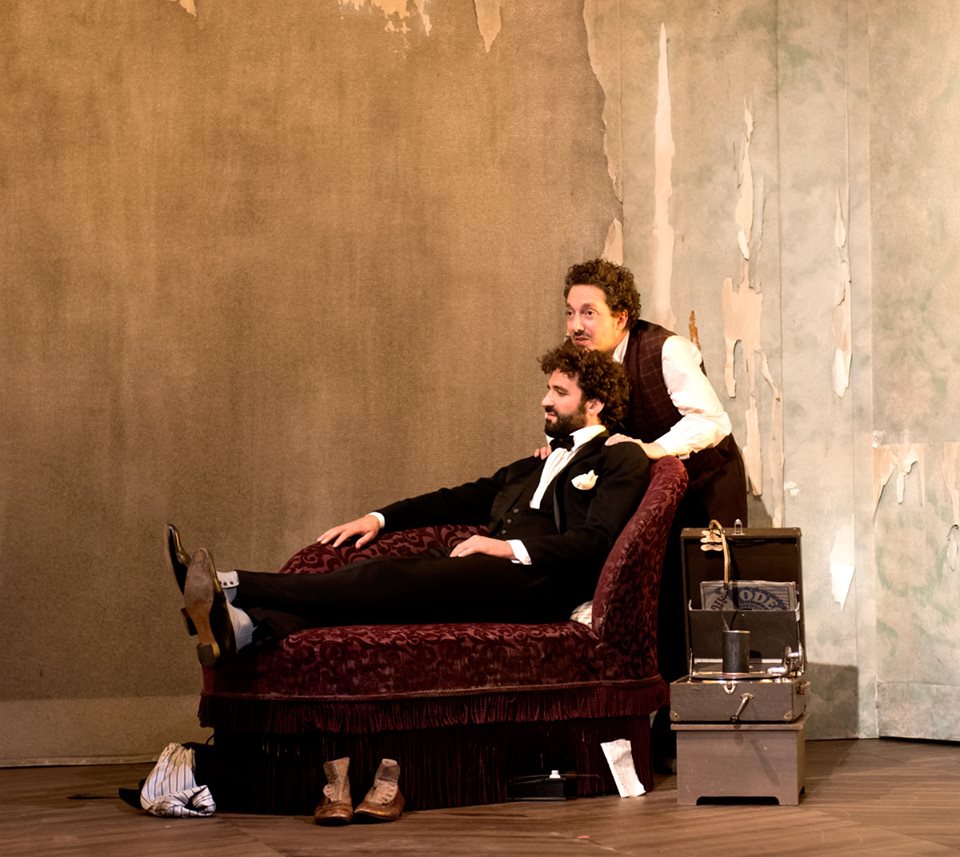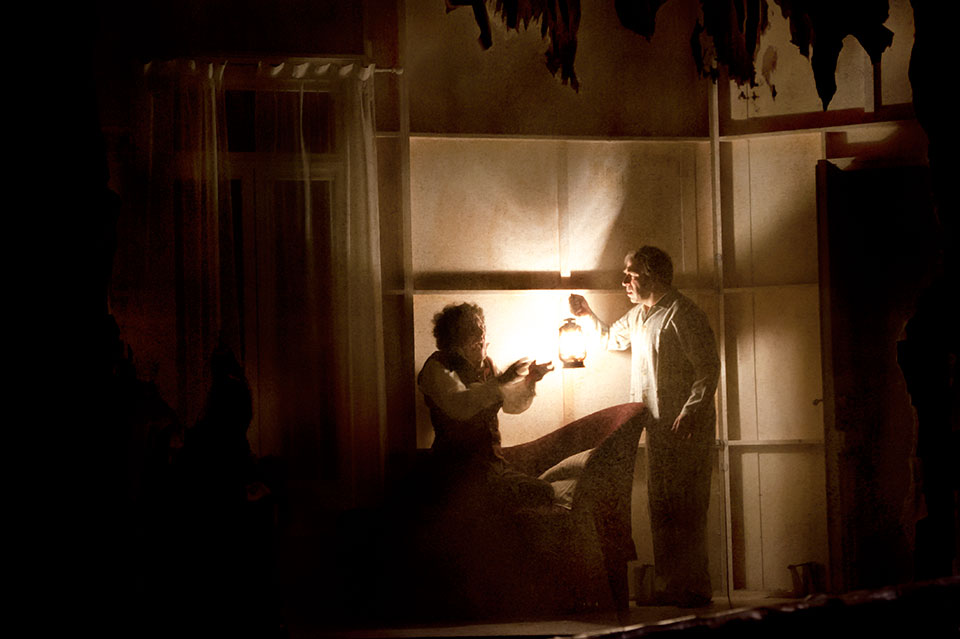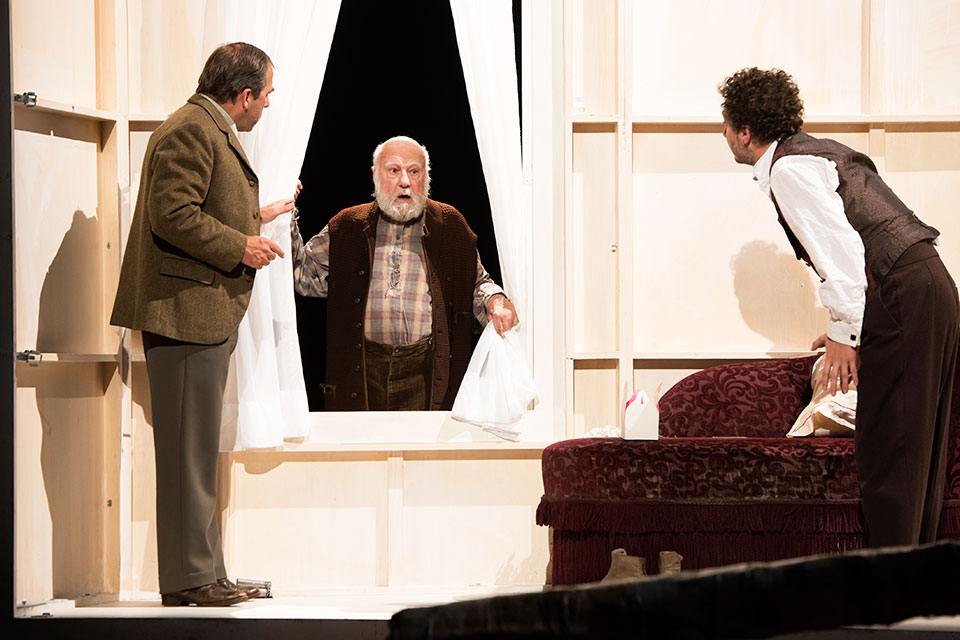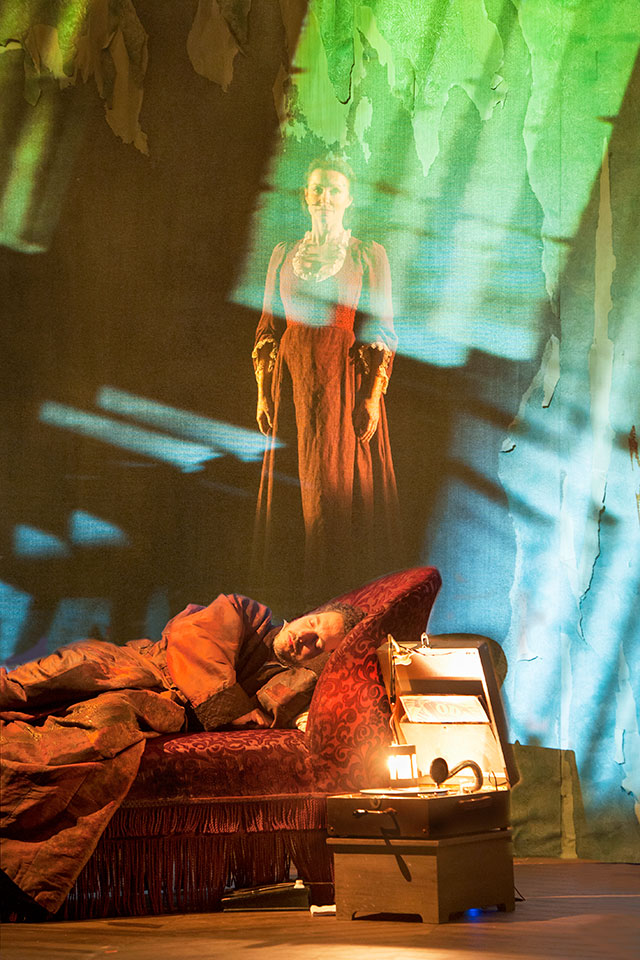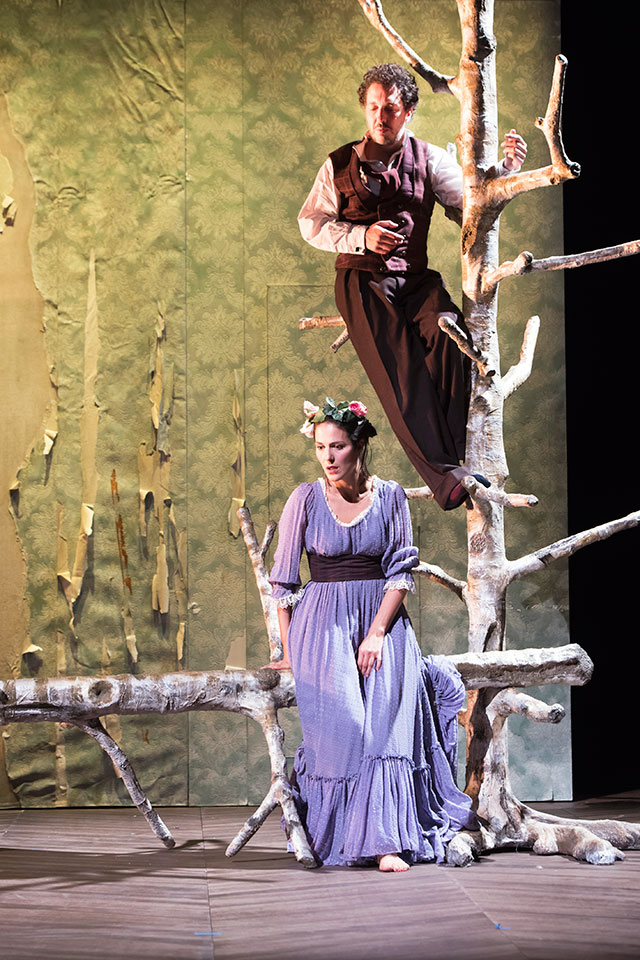Oblomov
by Ivan Alexandrovitch Gontcharov
Directed by Volodia Serre
Vx-Colombier
Vx-Colombier
Oblomov
2015-01-09 00:00:00 2015-01-25 00:00:00
A landowner residing in St. Petersburg, Oblomov spends his days lying on the sofa in his dressing gown, wallowing in a laziness verging on lethargy.
While he has just learned from his servant Zakhar that he needs to move out of his home within eight days and that his revenues will decline, he dreams of Oblomovka, the village of his childhood. The idle aristocrat, suffering from oblomovism, a term invented by his friend Stolz to define his apathy, is abruptly roused and brought back to life by his friend’s entreaties. Stolz tries to make him resume a normal daily routine that is dynamic and optimistic. He introduces him to the young and beautiful Olga. Will Oblomov be able to surpass himself and take the risk of falling in love? Or will the fear of the suffering caused by passion and his yearning for tranquillity triumph?
Ivan Alexandrovitch Gontcharov, the author
Born in Siberia, Ivan Aleksandrovich Goncharov (1812-1891) was one of the founders of the Russian realist novel. This civil servant, who was reputed to be unadventurous but in fact travelled around the world, only wrote three novels: A Common Story (1847) –which ushered in this new literary trend–, Oblomov (1859) and The Precipice (1869). A novel of manners and a satire of the 19th century Russian nobility, Oblomov depicts a Russia soon to be freed from serfdom; the dream sequences –evocations of patriarchal life in the provinces– paint an idyllic picture of old Russia. The antihero par excellence, Oblomov has become a universal literary myth, to the point where his name has entered everyday language, with oblomovism, to define an acute laziness combined with melancholy.
Volodia Serre, the director
Combining a career as an actor and a director since graduating from the National Conservatory of Dramatic Art in Paris, Volodia Serre founded the company Le cinq mai (The fifth of May), in honour of the first words of Chekhov’s Three Sisters. Her stagings, nourished by troupe work, alternate productions in which the text is the raw material with more experimental forms and has also led her to work as an adapter (W.G. Sebald’s Austerlitz, 2007, and Nikolai Erdman’s The Suicide, 2008), a translator (with Lorène Ehrmann for Chekhov’s Three Sisters, 2010) or a librettist (My way to hell –électropéra–, 2010, and Forèst –food opera–, 2015, music by Matteo Franceschini). In her adaptation of Oblomov for the Comédie-Française, Volodia Serre has sought to preserve the humour of the novel so as to better examine the relevance of our development model: should growth be the engine of our civilization? Does Oblomov’s recourse to dream and inertia not invite us to listen to something other than the drums of the –forced– march of progress?

Creative team
Adaptation et mise en scène : Volodia Serre
Traduction : André Markowicz
Collaboratrice artistique : Pamela Ravassard
Scénographie : Marc Lainé
Vidéo : Thomas Rathier
Costumes : Hanna Sjödin
Assistante aux costumes : Camille Lamy
Lumières : Kévin Briard
Réalisation sonore : Frédéric Minière
Maquillages : Faustine-Léa Violleau
Distribution
the company
-

-

-
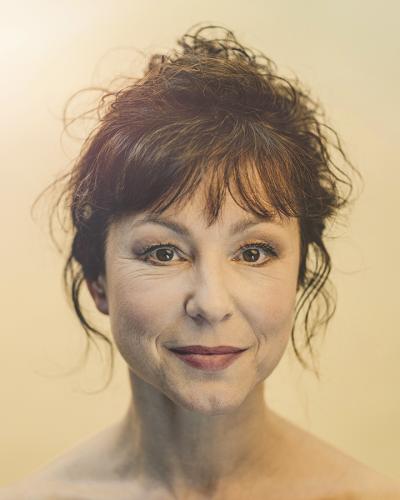
-

-

-

Sébastien
See biography
Pouderoux
and
Raphaèle Bouchard: Olga Sergueïevna Ilinskaïa
